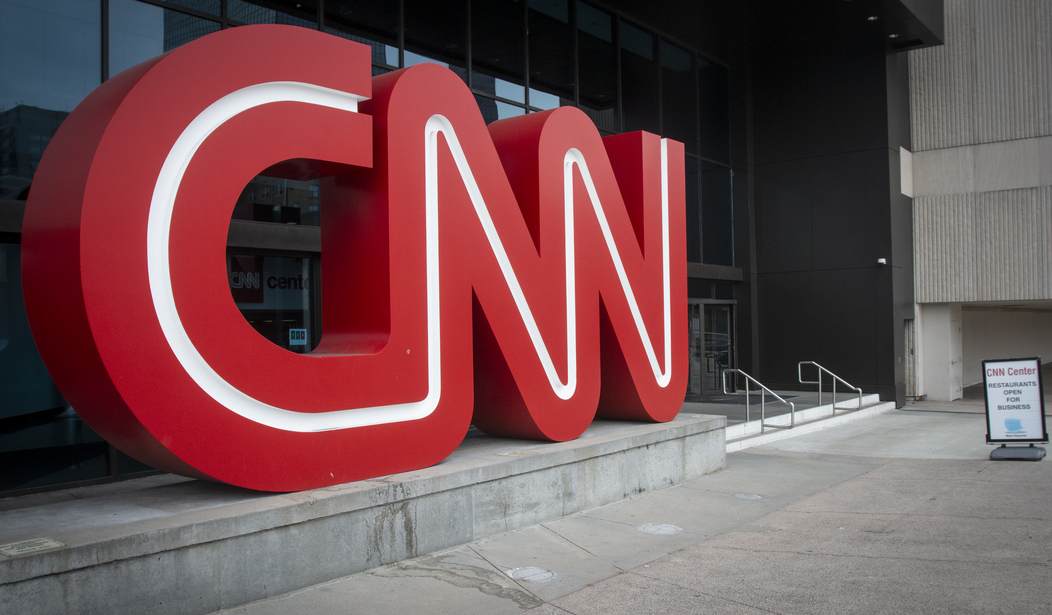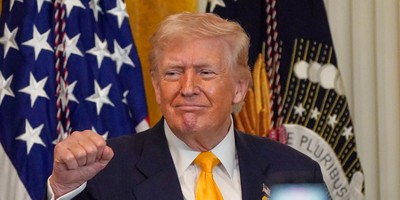Former Rolling Stone contributing editor and reporter Matt Taibbi is a Substack worth subscribing to, even though he’s no Trump fan or a conservative. He is fair, however, and often directs fire more towards his side of the aisle than not in recent years. You can see why Taibbi decided to leave the establishment media and focus solely on his independent venture—most of his content wouldn’t pass the soft politburos embedded in most liberal media outlets. Glenn Greenwald, another worthwhile read and committee progressive, opted to leave the publication he founded—The Intercept—over editorial clashes in 2020 over his piece about Joe Biden. It’s a vicious irony that Greenwald, who founded the site as a haven for government whistleblowers looking to hold the wealthy and well-connected accountable, was forced out.
Taibbi was invited to make a case for why the mainstream press shouldn’t be trusted at the Munk Debates, a series of events where major policy issues are discussed among a team of experts, pro and con, in Toronto, Canada. He posted his opening remarks, which took a hatchet to the media’s credibility. He doesn’t mince words, never has, in his affirmation that the liberal media has destroyed its credibility, a trend accelerated by Donald Trump’s 2016 win. At the very least, reporters should be embarrassed or feel something resembling repentance when they blow a story. Instead, there’s a blasé attitude since, as Taibbi highlighted, there’s more of an emphasis on editorial direction and narrative manufacturing than getting the facts right.
The first part of his opening remarks can be applied to both media sectors, conservative and liberal, though the latter has the institutional monopoly and greater reach. That’s not to excuse conservative media outlets, who also go off on unhinged tangents that are equally embarrassing, but we didn’t peddle numerous fake stories that emanated from a now-debunked dossier bankrolled by the Clinton campaign. The media has been fixated on so-called ‘election deniers’ recently, referencing those who have questioned the legitimacy of the 2020 election. Taibbi notes that Russian collusion hysterics, of which he was an original skeptic, is a crazier story to believe in wholesale (via SubStack) [emphasis mine]:
I love the news business. It’s in my bones. But I mourn for it. It’s destroyed itself.
My father had a saying: “The story’s the boss.” In the American context, if the facts tell you the Republicans were the primary villains in this or that disaster, you write that story. If the facts point more at Democrats, you go that way. If it turns out they’re both culpable, as was often the case for me across nearly ten years of investigating Wall Street and the causes of the 2008 crash for Rolling Stone, you write that. We’re not supposed to nudge facts one way or another. Our job is to call things as we see them and leave the rest up to you.
We don’t do that now. The story is no longer the boss. Instead, we sell narrative, as part of a new business model that’s increasingly indifferent to fact.
[…]
With editors now more concerned with retaining audience than getting things right, the defining characteristic across the business — from right to left — is inaccuracy. We just get a lot of stuff wrong now. It’s now less important for reporters to be accurate than “directionally” correct, which in center-left “mainstream” media mostly comes down to having the right views, like opposing Donald Trump, or anti-vaxxers, or election-deniers, or protesting Canadian truckers, or any other people deemed wrongthinkers.
In the zeal to “hold Trump accountable,” or oppose figures like Vladimir Putin, ethical guardrails have been tossed out. Silent edits have become common. Serious accusations are made without calling people for comment. Reporters get too cozy with politicians, and as a result report information either without attribution at all or sourced to unnamed officials or “people familiar with the matter.” Like scientists, journalists should be able to reproduce each other’s work in the lab. With too many anonymous sources, this becomes impossible.
We had an incident a few weeks ago where the lede of a wire service story read, “A senior U.S. intelligence official says Russian missiles crossed into NATO member Poland.” That’s the kind of story where if you get it wrong, you can start a war, but they still put all their chips on one unnamed source. That’s very risky practice even if you’re right.
That story turned out to be wrong, which sadly is no longer uncommon. In the Trump years an extraordinary number of “bombshells” went sideways. From the “pee tape” to the Alfa Server story to speculation that Trump was a Russian spy (recruited before disco) to false reports of Russians hacking a Vermont utility to an evidence-free story about Trump’s campaign manager somehow sneaking undetected to meet the most watched human on earth, Julian Assange in the Ecuadorian embassy in London, we’ve accumulated piles of wrong stories.
I’m no fan of Donald Trump. I wrote a book about the man called Insane Clown President. But I’ve compiled a list of over 100 of these “bombshells” that went belly up, from “Bountygate” to MSNBC saying Russian oligarchs co-signed a loan for Trump to countless others, because these stories offend me. A good journalist should always be ashamed of error. It bothers me to see so many of my colleagues so unashamed.
[…]
The excuse, “At least we’re not Breitbart,” doesn’t even hold. Think about another of these bombshells, the one in which Trump’s lawyer Michael Cohen supposedly went to Prague to meet with Russian hackers. This story came from the now-disgraced dossier of former British spy Christopher Steele. It’s been refuted multiple times, including by Special Counsel Robert Mueller, who flatly declared Cohen “never traveled to Prague.” Yet the tale will not die.
From MSNBC to CNN to McClatchy we’ve had leading media outlets continue to take seriously the idea that Donald Trump’s lawyer traveled to Prague to scheme with “Kremlin Representatives” over how to fix the election using Romanian hackers, who according to Steele would afterward retreat to Bulgaria, and use that country as a “bolt hole” to “lie low.” If that’s not a conspiracy theory, I don’t know what is.
This story is every bit as nuts as the idea that the 2020 election was stolen. I would venture to say it’s crazier. It’s at least more creative.
Recommended
Taibbi's assessment is fair no matter where you land on the political spectrum, though I’m not opposed to the existence of partisan media operations. We do have free speech and First Amendment rights, and given our nation’s differing views on virtually everything, it seems natural that biased media operations would arise.
We’ve made errors here, at Townhall, though they have been corrected with an editor’s notes. From innocuous errors, like screwing up the states where some members of Congress represent, to major ones that required us to delete posts with more extended editor’s notes—it’s happened here, though not often. Not nearly as frequent as pillars of the liberal media establishment getting major stories wrong—the Associated Press botching the missile story in Poland is a prime example.
And when we do screw up because we’re all human, we’ll acknowledge and apologize—a trait seldom seen with the more left-leaning media members. Is there a way to fix it? Yes, but it’s irrelevant. You’re not going to contract some debilitating mental breakdown by just digesting MSNBC, though it would drive me insane. It’s just imperative to recognize partisan media and read both sides. You’ll also be able to figure out which outlets—Left and Right—to avoid too.

























Join the conversation as a VIP Member